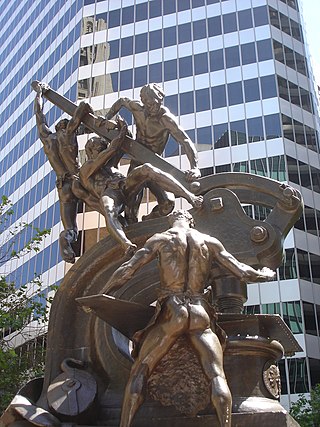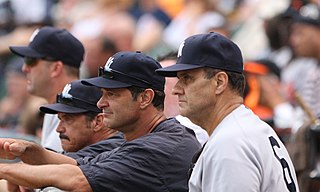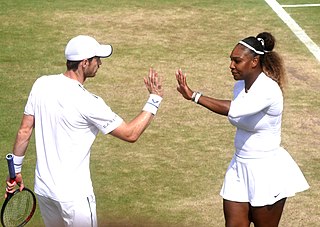
An amateur is generally considered a person who pursues an avocation independent from their source of income. Amateurs and their pursuits are also described as popular, informal, self-taught, user-generated, DIY, and hobbyist.

A theatre director or stage director is a professional in the theatre field who oversees and orchestrates the mounting of a theatre production such as a play, opera, dance, drama, musical theatre performance, etc. by unifying various endeavors and aspects of production. The director's function is to ensure the quality and completeness of theatre production and to lead the members of the creative team into realizing their artistic vision for it. The director thereby collaborates with a team of creative individuals and other staff to coordinate research and work on all the aspects of the production which includes the Technical and the Performance aspects. The technical aspects include: stagecraft, costume design, theatrical properties (props), lighting design, set design, and sound design for the production. The performance aspects include: acting, dance, orchestra, chants, and stage combat.

Social class in the United States refers to the idea of grouping Americans by some measure of social status, typically by economic status. However, it could also refer to social status and/or location. The idea that American society can be divided into social classes is disputed, and there are many competing class systems.

A professional is a member of a profession or any person who works in a specified professional activity. The term also describes the standards of education and training that prepare members of the profession with the particular knowledge and skills necessary to perform their specific role within that profession. In addition, most professionals are subject to strict codes of conduct, enshrining rigorous ethical and moral obligations. Professional standards of practice and ethics for a particular field are typically agreed upon and maintained through widely recognized professional associations, such as the IEEE. Some definitions of "professional" limit this term to those professions that serve some important aspect of public interest and the general good of society.

In professional sports, as opposed to amateur sports, participants receive payment for their performance. Professionalism in sport has come to the fore through a combination of developments. Mass media and increased leisure have brought larger audiences, so that sports organizations or teams can command large incomes. As a result, more sportspeople can afford to make sport their primary career, devoting the training time necessary to increase skills, physical condition, and experience to modern levels of achievement. This proficiency has also helped boost the popularity of sports. In most sports played professionally there are many more amateur than professional players, though amateurs and professionals do not usually compete.
Freelance, freelancer, or freelance worker, are terms commonly used for a person who is self-employed and not necessarily committed to a particular employer long-term. Freelance workers are sometimes represented by a company or a temporary agency that resells freelance labor to clients; others work independently or use professional associations or websites to get work.

Amateur sports are sports in which participants engage largely or entirely without remuneration. The distinction is made between amateur sporting participants and professional sporting participants, who are paid for the time they spend competing and training. In the majority of sports which feature professional players, the professionals will participate at a higher standard of play than amateur competitors, as they can train full-time without the stress of having another job. The majority of worldwide sporting participants are amateurs.

An athletic coach is a person coaching in sport, involved in the direction, instruction, and training of a sports team or athlete.
Semi-professional sports are sports in which athletes are not participating on a full-time basis, but still receive some payment. Semi-professionals are not amateur because they receive regular payment from their team, but generally at a considerably lower rate than a full-time professional athlete. As a result, semi-professional players frequently have full-time employment elsewhere. A semi-pro player or team could also be one that represents a place of employment that only the employees are allowed to play on. In this case, it is considered semi-pro because their employer pays them, but for their regular job, not for playing on the company's team.

College athletics in the United States or college sports in the United States refers primarily to sports and athletic training and competition organized and funded by institutions of tertiary education.

A rehearsal is an activity in the performing arts that occurs as preparation for a performance in music, theatre, dance and related arts, such as opera, musical theatre and film production. It is undertaken as a form of practising, to ensure that all details of the subsequent performance are adequately prepared and coordinated. The term rehearsal typically refers to ensemble activities undertaken by a group of people. For example, when a musician is preparing a piano concerto in their music studio, this is called practising, but when they practice it with an orchestra, this is called a rehearsal. The music rehearsal takes place in a music rehearsal space.

A professional golfer is somebody who receives payments or financial rewards in the sport of golf that are directly related to their skill or reputation. A person who earns money by teaching or playing golf is traditionally considered a "golf pro", most of whom are teachers/coaches. The professional golfer status is reserved for people who play, rather than teach, golf for a career.

Amateur theatre, also known as amateur dramatics, is theatre performed by amateur actors and singers. Amateur theatre groups may stage plays, revues, musicals, light opera, pantomime or variety shows, and do so for the social activity as well as for aesthetic values. Productions may take place in venues ranging from the open air, community centres, or schools to independent or major professional theatres.

A vocal coach, also known as a voice coach, is a music teacher, usually a piano accompanist, who helps singers prepare for a performance, often also helping them to improve their singing technique and take care of and develop their voice, but is not the same as a singing teacher. Vocal coaches may give private music lessons or group workshops or masterclasses to singers. They may also coach singers who are rehearsing on stage, or who are singing during a recording session. Vocal coaches are used in both classical music and in popular music styles such as rock and gospel. While some vocal coaches provide a range of instruction on singing techniques, others specialize in areas such as breathing techniques or diction and pronunciation.
Professors in the United States commonly occupy any of several positions of teaching and research within a college or university. In the U.S., the word "professor" is often used to refer to anyone who teaches at a college of university level at any academic rank. This usage differs from the predominant usage of the word professor in other countries, where the unqualified word "professor" only refers to "full professors". Other tenure-track faculty positions include assistant professor and associate professor (mid-level). Other teaching-focused positions that use the term "professor" include Clinical Professor, Professor of Practice, and Teaching Professor. Most faculty with titles of "Lecturer" and "Instructor" in the U.S. are not eligible for tenure, though they are still often referred to as "professors" in a general sense and as a courtesy form of address. Non-tenure-track positions may be full or part time, although the qualifier "adjunct" always denotes part-time.

Professor is an academic rank at universities and other post-secondary education and research institutions in most countries. Literally, professor derives from Latin as a "person who professes". Professors are usually experts in their field and teachers of the highest rank.
Profession tax is the tax levied and collected by the state governments in India. It is a direct tax. A person earning an income from salary or anyone practicing a profession such as chartered accountant, company secretary, lawyer, doctor etc. are required to pay this professional tax. Different states have different rates and methods of collection. In India, profession tax is imposed every month. However, not all states impose this tax. The states which impose professional tax are Karnataka, Bihar, West Bengal, Andhra Pradesh, Telangana, Maharashtra, Tamil Nadu, Gujarat, Assam, Kerala, Meghalaya, Odisha, Tripura, Madhya Pradesh, Jharkhand and Sikkim, Mizoram. Business owners, working individuals, merchants and people carrying out various occupations come under the purview of this tax.
The definition of amateurism within the context of collegiate sports has evolved since it was first pronounced by the NCAA upon its inception in 1906. In its early stages, changes in the NCAA's core beliefs in what a student-athlete should be rewarded and allowed to accept financially for their athletic talents had its effects on the definition of amateurism. Over the course of the 20th and early 21st century, regulatory changes, court claims, and the beliefs of NCAA authority about student-athlete compensation further developed what an amateur collegiate athlete is entitled to receive. This evolution is what impacted the evolving logistics of the NCAA Bylaw 12, which explains the current definition of amateurism and what it grants or restricts a collegiate athlete to be able to receive as compensation for their participation. These guidelines have been described to both benefit and unjustifiably limit the student-athlete and the success of institutions’ athletic performance. This debate has been a strong driver in court claims against the NCAA and the mainstream controversy about what student-athletes should have the right to receive financially.

A scholar is a person who is a researcher or has expertise in an academic discipline. A scholar can also be an academic, who works as a professor, teacher, or researcher at a university. An academic usually holds an advanced degree or a terminal degree, such as a master's degree or a doctorate (PhD). Independent scholars and public intellectuals work outside the academy yet may publish in academic journals and participate in scholarly public discussion.

Gender pay gap in sports is the persistence of unequal pay in sports, particularly for female athletes who do not receive equal revenue compared to their counterparts, which differs depending on the sport. According to the research conducted by BBC, "a total of 83% of sports now reward men and women equally". However, it does not mean that the wage gap in sports has narrowed or disappeared. In 2018, Forbes released the list of the top 100 highest-paid athletes, all of them being male athletes. A similar situation also occurred in 2017, where there was only one female athlete – tennis player Serena Williams — who joined the list and ranked No.56. Billie Jean King brought awareness to the issue of unequal pay in the early 1970s, when she was awarded $2,900 less than her male counterpart at the Italian Open. The timeline of the gender pay gap in sports displays the significant events that have occurred since the 1970s.














